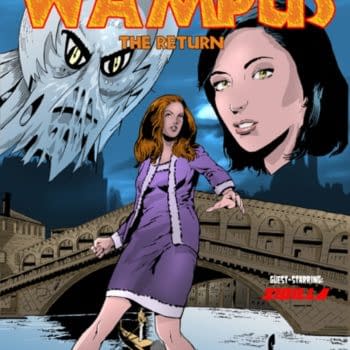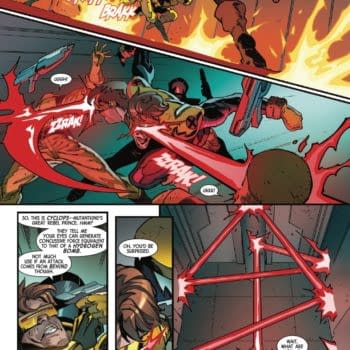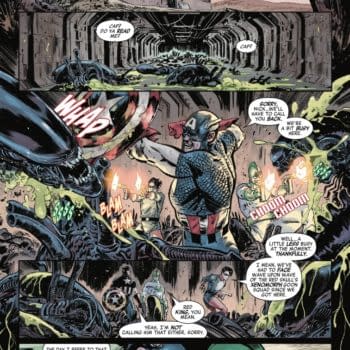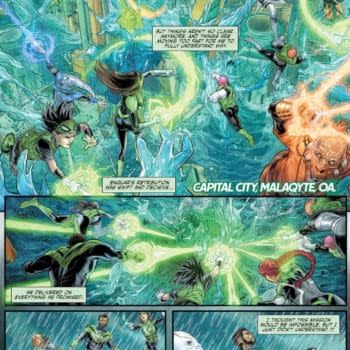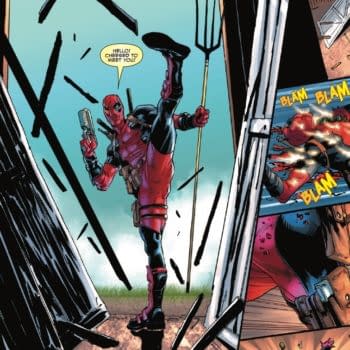Posted in: Comics, san diego comic con | Tagged: 2016, Comic Book Law School, comic con, comiccon, comicon, Comics, entertainment, july, Michael Lovitz, san diego, san diego comic con, sdcc, sdcc '16, sdcc16, sdcc2016
Back To The Classroom: Comic Book Law School At SDCC
Anthony Desiato (@DesiWestside) writes,
How do you protect an idea? For aspiring comic book professionals and curious minds alike, San Diego Comic Con's Comic Book Law School series offers insight both theoretical and practical.
I spent three years in law school, and Thursday's panel made me feel like I was right back in the classroom. (I leave it to the reader to infer whether or not I consider that to be a good thing.) It was the first of three sessions over the weekend exploring how intellectual property (IP) issues play out in the pop culture world.
Of the four major areas of IP—trade secrets, patent, copyright, and trademark—the presentation focused primarily on copyright law. Attorney Michael Lovitz kicked off the discussion with the hypothetical example of an independent comic book creator who sees his idea exploited by an artist he once discussed the concept with. As Lovitz explained to the inquisitive audience, copyright law does not protect ideas. Rather, it protects expressions of ideas (specifically, creative works that are fixed in a tangible medium of expression).
This idea/expression dichotomy accounts for why characters like Hyperion, Plutonian, and countless others do not run afoul of copyright law. Although they may share broad-strokes similarities with Superman, the idea of a strange visitor from another planet with powers and abilities far beyond those of mortal men is not protectable on its own. Rather, it is the expression of that idea (through specific details, including Krypton, the Daily Planet, and all the other familiar trappings) that defines the character and warrants protection.
The panel also delved into the intersection between legal rights and business realities. For example, the test for copyright infringement is one of "substantial similarity" and access. The latter prong accounts for why the major publishers will often not even open unsolicited submissions. Business strategy also accounts for why DC and Marvel do not enforce their rights against the creators in Artist Alley who routinely draw commissions of characters they do not own. Although these commissions are technically infringements, cultivating relationships with creators and encouraging fan interest in the properties are ultimately more valuable to the companies.
Subsequent installments of the Comic Book Law School series will examine licensing agreements and the ever-growing doctrine of fair use. Just as Lovitz read his disclaimer to the audience, I, too, will take this opportunity to remind readers that this article is meant for informational and entertainment purposes only and does not constitute legal advice.







